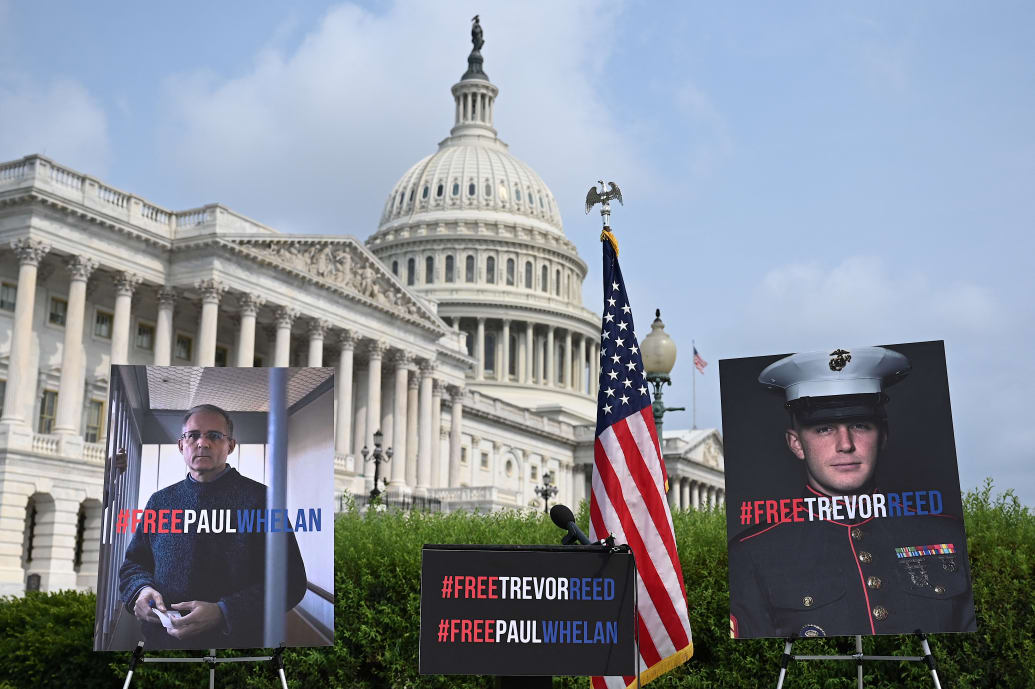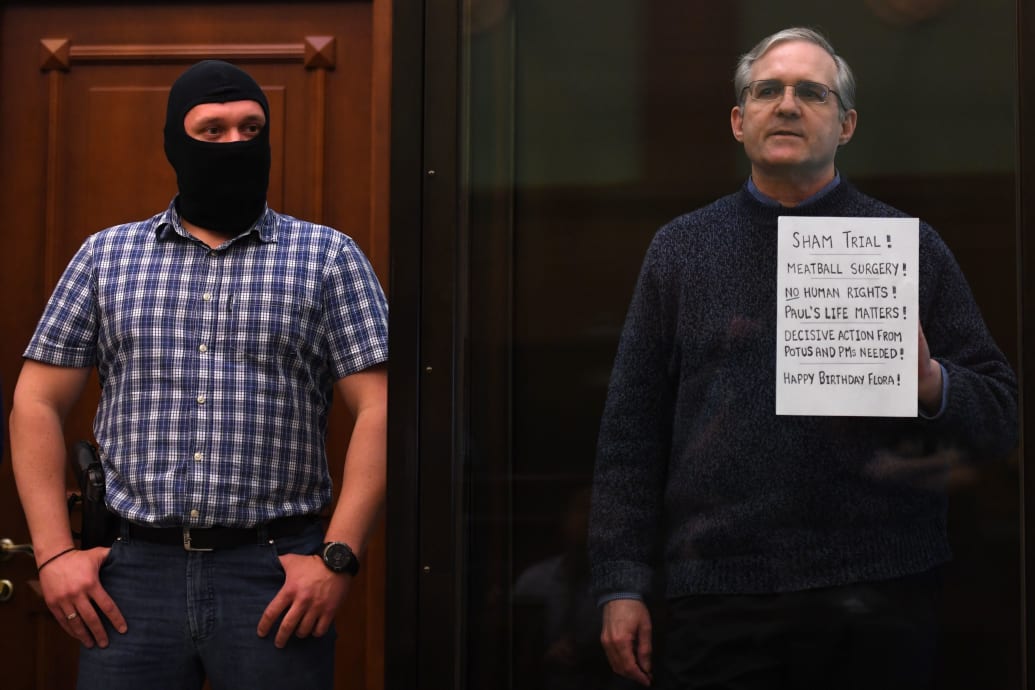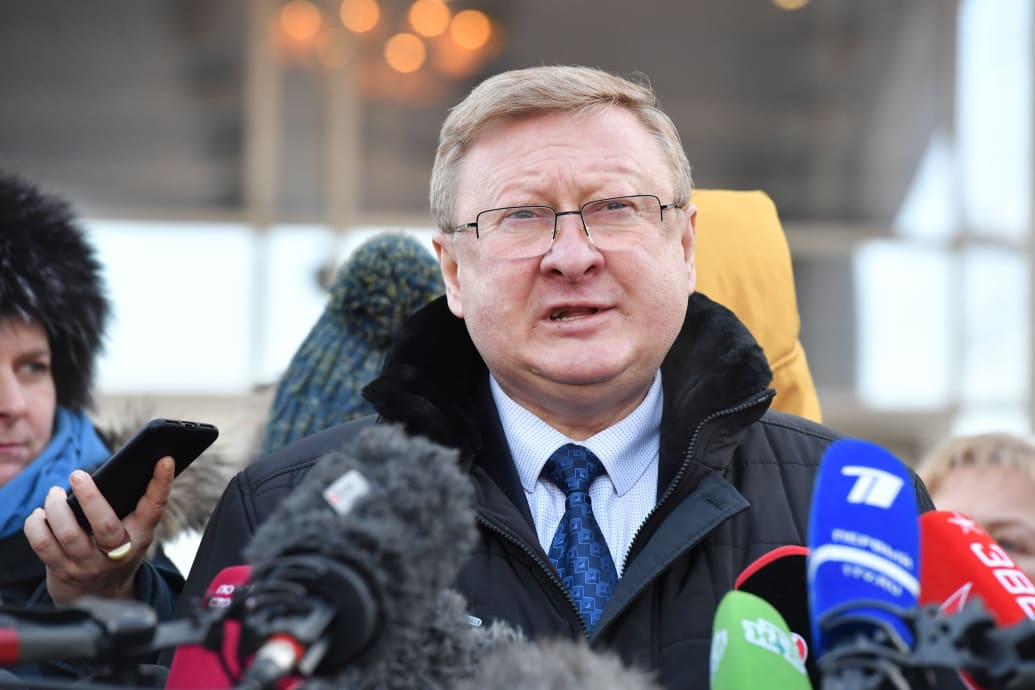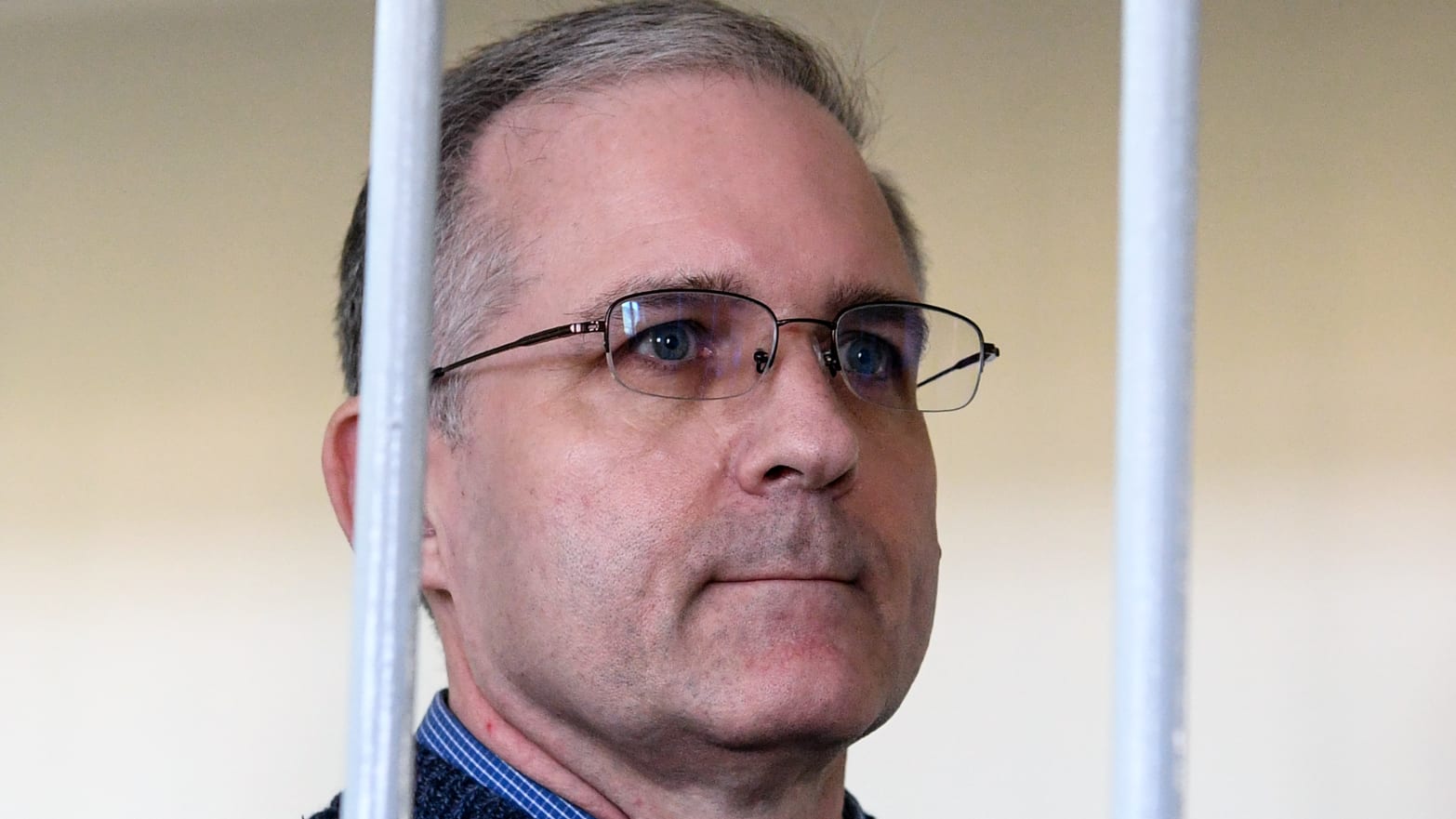This American’s Family Wants to Know Why He’s Been Left Behind in Russia
“Paul should have been the first to get swapped,” Vladimir Zherebenkov, Paul Whelan’s attorney, told The Daily Beast.
The Biden administration has been praised in recent weeks for freeing one American detained in Russia and bringing him home through a prisoner swap. But while freeing Trevor Reed, the administration left behind another American who has been detained in Russia for years. Former U.S. Marine Paul Whelan is still behind bars in Russia with no plausible exit plan, his family and lawyers tell The Daily Beast.
While happy that Reed is out of the Kremlin’s clutches, the Whelan family can’t help but feel left behind, and increasingly frustrated with the Biden administration and its process for bringing detainees home.
Whelan’s attorney Vladimir Zherebenkov told The Daily Beast in an exclusive interview he was “ultimately disappointed,” when he learned that it was Reed and not his client whom the Biden administration chose to bring home first.
“Paul should have been the first to get swapped. He is older, he has had concussions after the war, he has had a surgery and frankly, he has been suffering morally much more than Trevor,” Zherebenkov said of Whelan, who is accused of espionage and has been sentenced to 16 years in a Russian prison.

Outside the U.S. Capitol in Washington, D.C., on July 29, 2021.
Jim Watson/Getty
Even now, as talk of Whelan’s potential return home grows louder—perhaps in part due to Reed’s homecoming—his family has run into roadblocks with the Biden administration, whose behavior has shocked them, David Whelan, Paul Whelan’s twin brother, told The Daily Beast.
In discussions about Reed’s case, the State Department informed Whelan’s family that it expects the family to make more noise if it wants to have its case addressed, David Whelan said.
“US. State Department representatives tried to clarify that in a call to one of our families this week. They feel we need to do more, ‘make more noise’ or ‘be a squeakier wheel,’” David Whelan told The Daily Beast, ticking off the number of events, visits to Washington, D.C., and public appeals the family has made to bring his brother home.

Paul Whelan in court on June 15, 2020.
Kirill Kudryavtsev/Getty
His sister, Elizabeth, has made more than 20 visits to Washington to push for his release. The family has done 40 media interviews since Reed’s release alone. Through the years the family has gone to the White House, Capitol Hill, and had the ear of the National Security Council.
But to no avail.
“This is a hard message to hear. The family of a wrongful detainee shouldn’t be bearing the burden of persuading American government officials to act to secure the release of an American citizen wrongfully detained,” Whelan said. “What sort of circus does a family need to put on to make more noise, to squeak louder, to move the immovable levers of government?”
Families of hostages are typically encouraged not to draw excessive attention to their loved one’s case to avoid interfering in negotiations or letting the government responsible for detaining them think they have more leverage.
The State Department declined to comment on their alleged suggestion that the Whelan family make more noise.
“We will not provide details about any private conversations,” a State Department spokesperson told The Daily Beast. “We remain in regular contact with the families of those held hostage or wrongfully detained; we are grateful for their partnership and feedback; and we continue to work to ensure we are communicating and sharing information in a way that is helpful to our families.”
But it’s not totally clear—to the family or to the public—what the State Department’s plan is to help bring Whelan home, a dilemma that is growing in complexity by the day, as American interlocutors must weave detainee negotiations between Russian President Vladimir Putin’s attacks on Ukraine in the ongoing war, which has now been going on for more than 100 days.

Vladiir Zherebenkov, Paul Whelan’s lawyer.
Mladen Antonov/Getty
A glimmer of hope has emerged in recent days, though. The State Department has been considering conducting another prisoner swap to bring Whelan home, Whelan’s attorney in Russia told The Daily Beast. This time, the Biden administration has been toying with the idea of exchanging him for convicted Russian arms dealer Viktor Bout, who was given a 25-year prison sentence in the United States in 2012.
Whelan may finally secure his freedom as negotiations continue, according to Zherebenkov.
“It’s amazing that now when Russia and the U.S. are practically enemies, the secret services, intelligence [agencies], and governments managed to agree on the swap,” Zherebenkov said. “I hope the special military operation is not going to prevent the next swap of Whelan for Bout.”
The only snag is that the family of Brittney Griner, the WNBA star detained in Russia just days before Russia started the war in Ukraine for carrying cannabis oil, has also heard that Griner could be exchanged for Bout, according to ABC News.
But with rumors flying, it’s not clear who has the right information, or which family is being strung along.

Former Soviet military officer and arms trafficking suspect Viktor Bout (C) deplanes after arriving at Westchester County Airport on Nov. 16, 2010, in White Plains, New York.
The State Department declined to elaborate.
“We will not comment on speculation,” the spokesperson for the State Department told The Daily Beast. “What we will say is that using the practice of wrongful detention as a bargaining chip for concessions represents a threat to the safety of everyone traveling, working, and living abroad. The United States opposes this practice everywhere.”
The Biden administration considers securing the release of both Whelan and Griner “an absolute priority,” the spokesperson added.
The plan to exchange Whelan for Bout, Zherebenkov stressed, is still not final.

Brittney Griner remains detained in Russia.
Bout’s attorney, Steve Zissou, told The Daily Beast he hasn’t heard from the State Department about a potential swap—for either Whelan or Griner—at all. “They don’t engage,” Zissou said of the State Department. “What there is, on the U.S. side, is complete radio silence.”
Zissou is open to an exchange with either Whelan or Griner, and said he suspects the Russian government would be open to it as well. “He’s gonna be released soon. Even if he’s a bad guy, it’s time for him to go home,” Zissou told The Daily Beast of Bout, referring to his decade served. “If it takes Paul Whelan and Brittney Griner, so be it.”
The idea that Bout might be on the table could be total hogwash, according to Rep. Haley Stevens (D-MI).
“In my conversations with Biden administration officials, in particular over the last month, exchanges come at great cost. They’re extraordinarily complicated. They are done in secrecy,” Stevens told The Daily Beast. “So my presumption is that if we’re hearing about another trade, it’s likely something that maybe the Russians are cooking up for propaganda purposes.”
Stevens, too, has not heard great answers as to why Whelan and Reed weren’t both exchanged simultaneously.
“It’s unclear to me why Trevor and Paul were not returned together,” Stevens told The Daily Beast.
The tangled geopolitical situation negotiators need to work through—if there is going to be a swap—is growing increasingly complicated by the day, Stevens warned.
“Russia and those in charge are very unpredictable, erratic oftentimes, and certainly not operating within normal international accords,” Stevens said. “We’re dealing with an extraordinarily rogue actor.”
The last swap was not entirely transparent, though, so details may not emerge for some time, Zherebenkov indicated.
“The negotiations were secret and quick, everything was decided so quietly without my involvement,” Zherebenkov said of Reed’s swap.
And details might be hush-hush for some time, as the United States has actively been trying to get Russia to back away from its war in Ukraine—and it doesn’t look to be ending anytime soon. U.S. intelligence assessments suggest a stalemate, or a war of attrition, is brewing.
